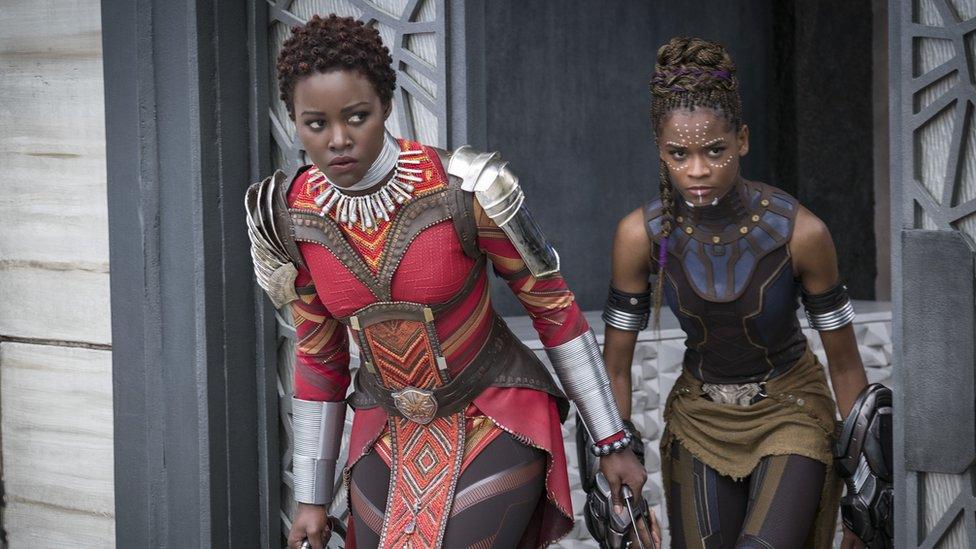Black Panther: Why Marvel loaned actors' costumes to Ipswich Museum
- Published
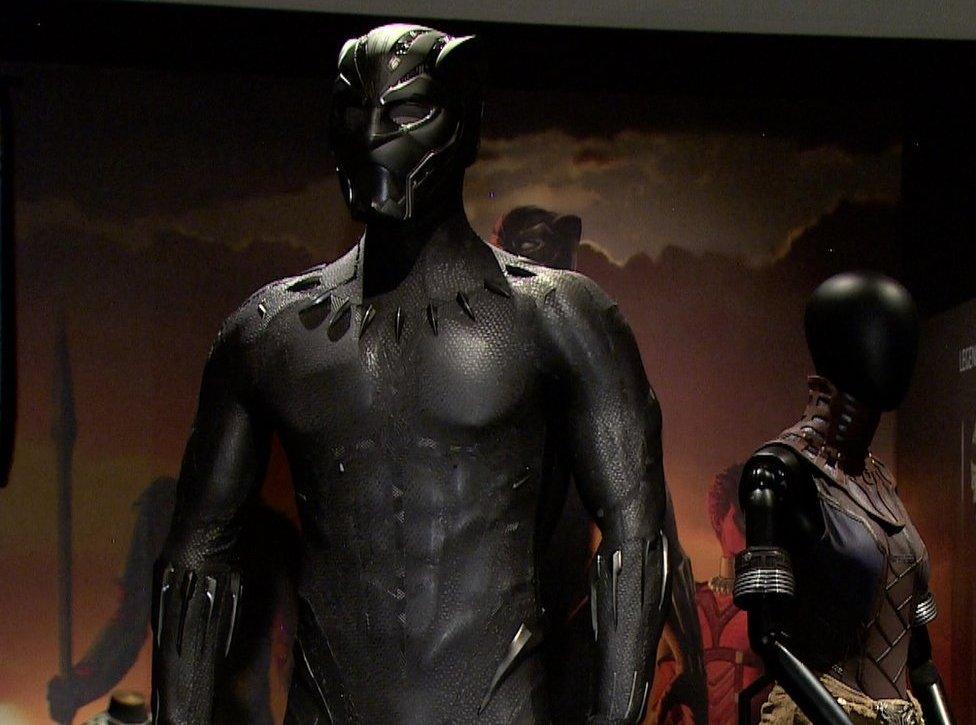
A black superhero and a predominantly black cast was a first for Marvel when it released the film in 2018
Marvel has, for the first time, loaned three of its Black Panther costumes to a British museum. It chose Ipswich as the place for them to go on display. Why - and what does it mean for the town?
Having a plot based around a black superhero and a predominantly black cast was a first for Marvel Studios when Black Panther was released in 2018.
Three costumes from the movie have now made the transatlantic trip to Suffolk, and Ipswich Museum's new Power of Stories exhibition.
"It's a huge deal that these costumes - from this epic story and this epic storyteller - are coming to little old Ipswich," says Melanie Hollis, the museum service's collections and learning curator.
"They show off the best of black culture and of black history, and so, for the black community I know, it's a really huge deal to have those role models to bring their children in to look up to and to celebrate as well."
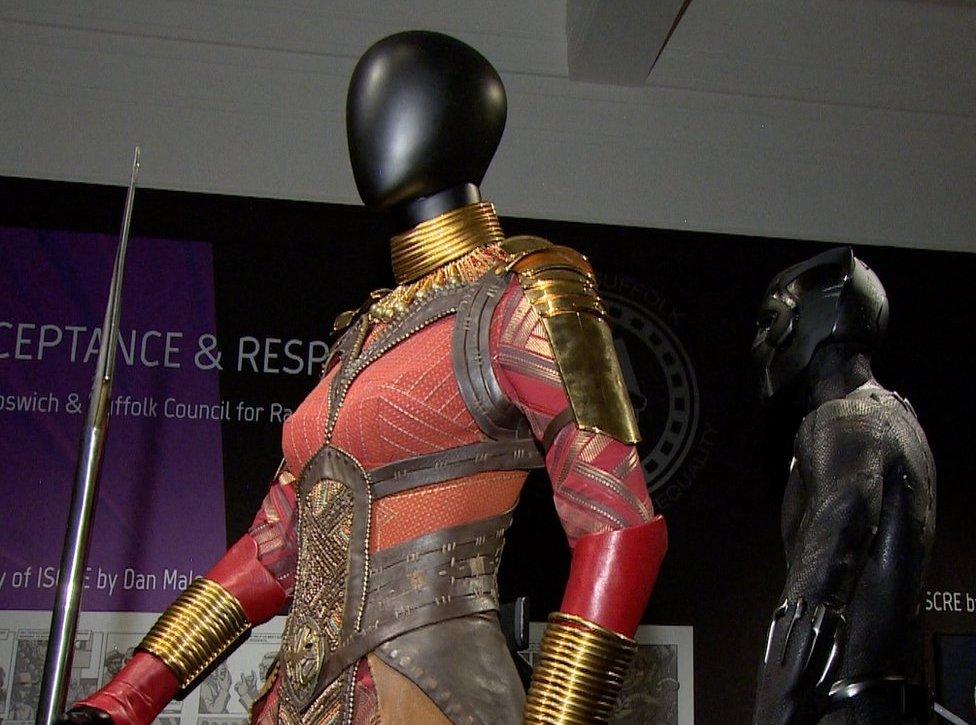
Taking centre stage in the exhibition are costumes worn by three characters in the film
Ipswich has a growing black and ethnic minority community, external, which currently makes up about 17% of the town's 133,000-strong population.
Taking centre stage are the garb worn by three characters in the film: T'Challa, the Black Panther and king of fictional African country Wakanda, played by Chadwick Boseman, who died of cancer in 2020; his scientific genius sister Shuri (Letitia Wright) and Okoye, Wakanda's military leader (Danai Gurira).
"A bit like the film itself, it's a watershed moment in terms of Ipswich and the cultural offer that is in the town," says Ms Hollis.
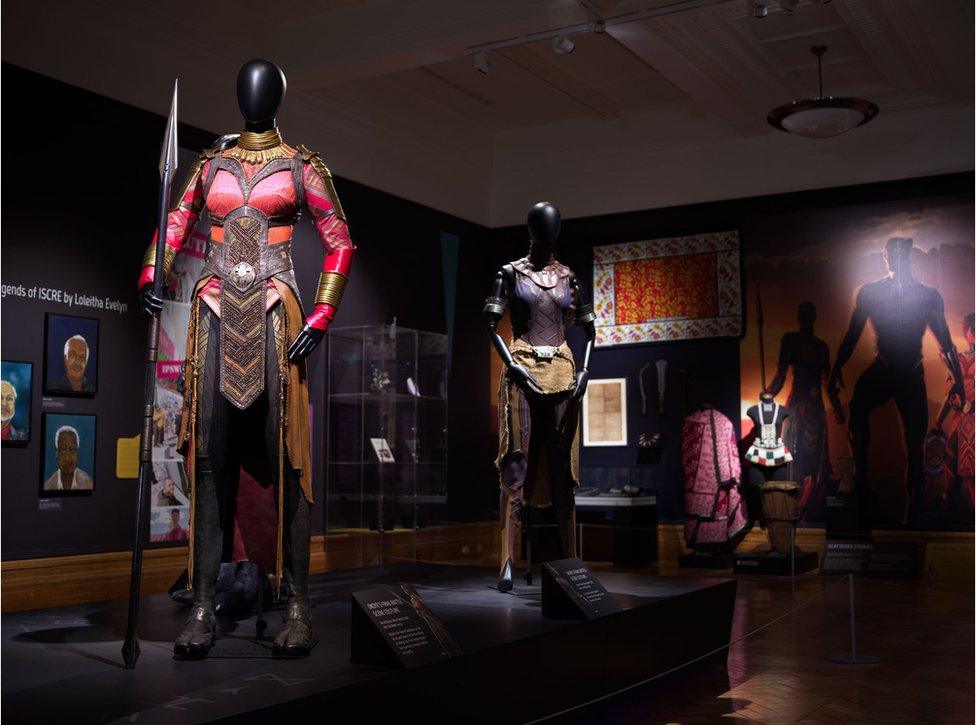
The museum asked its community panel to come up with something "exciting and relevant for more people"
The idea to showcase the costumes came from the museum after it was asked by its community panel to come up with something "exciting and relevant for more people".
They looked at popular culture and settled upon the idea of the Black Panther costumes.
You might also be interested in:
"We went away and had a think about what popular culture we might be able to draw on," says Ms Hollis. "Game of Thrones was talked about quite early on in the process, but we quite quickly came to the idea of Marvel.
"[We] had a think about the Black Panther costumes and how they could link to the museum collections and as you'll see in the exhibition, we will link them to the African collections we have."
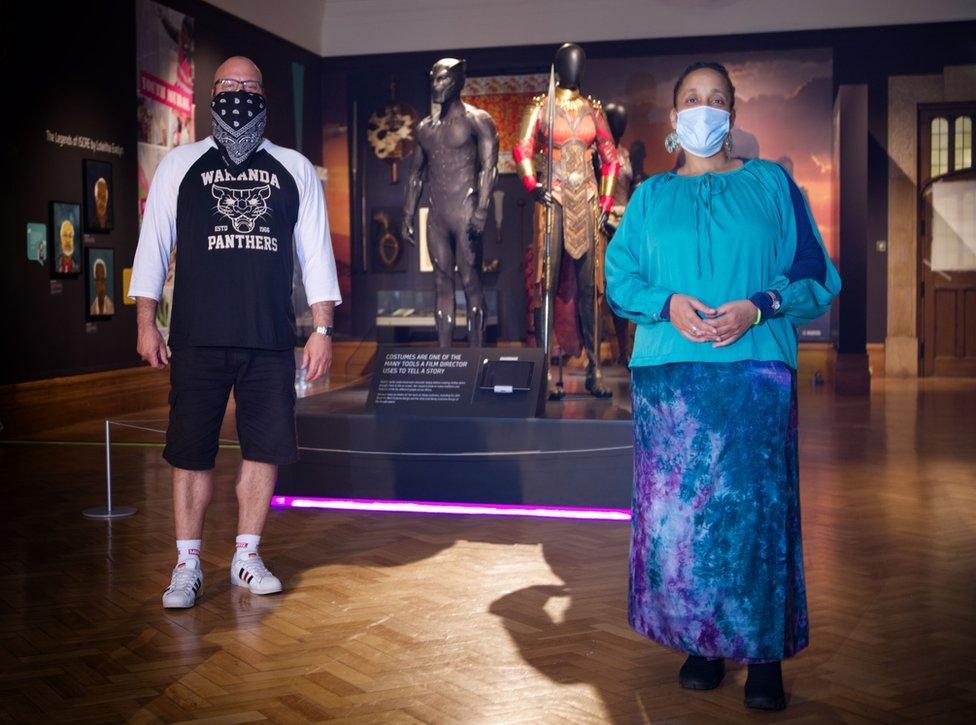
Glen Chisholm (left) and Imani Sorhaindo are among the community curators who helped shape how the exhibition would come to life
Six community curators - Ivy Devonish-Scott, Imani Sorhaindo, Daisy-Ann Lees, Lanai Collis-Phillips, Mike Lawless, Glen Chisholm - offered different perspectives on how the exhibition should look.
"Although we've been in a pandemic, we've managed as a team to work on shaping the tone of the exhibition and what content is going in. You hear their words, rather than mine in the exhibition which is a really powerful thing to experience," says Ms Hollis.
"It's massive to have this in Ipswich and a great opportunity for the town," says community curator Glen Chisholm.
"Marvel is a huge franchise and has a long history.
"The movies and TV shows are some of the most-watched in the world so to have a part of that in Ipswich is excellent.
"Black Panther is part of that universe and it also has a special place in the heart of the Black community and is an important part of representation."
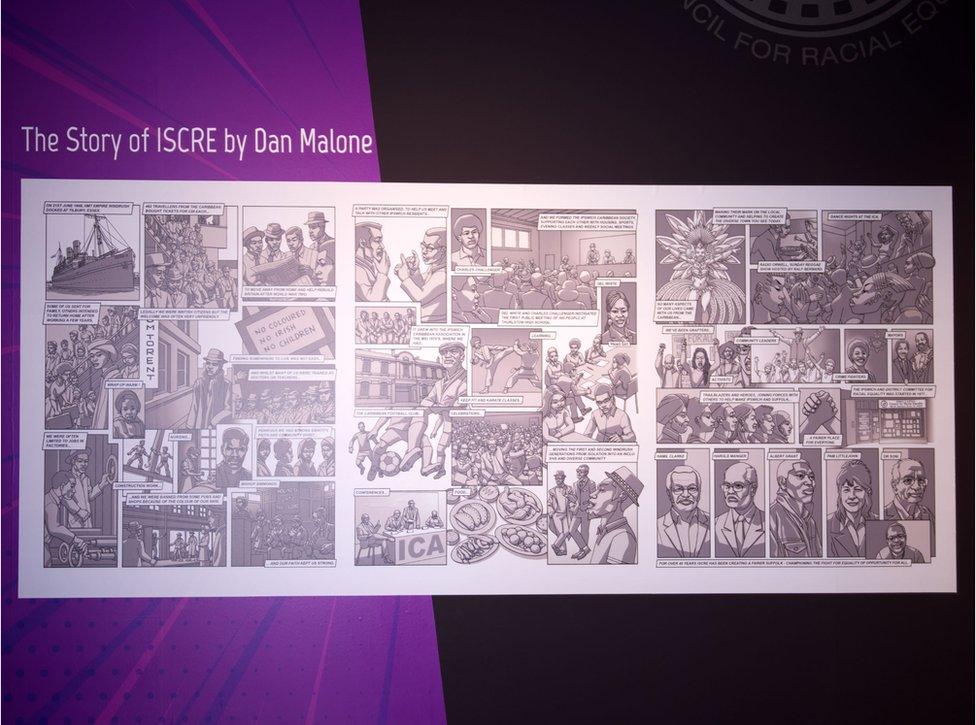
Artist Dan Malone was commissioned to produce the story of the Ipswich and Suffolk Council for Racial Equality (ISCRE) in comic art
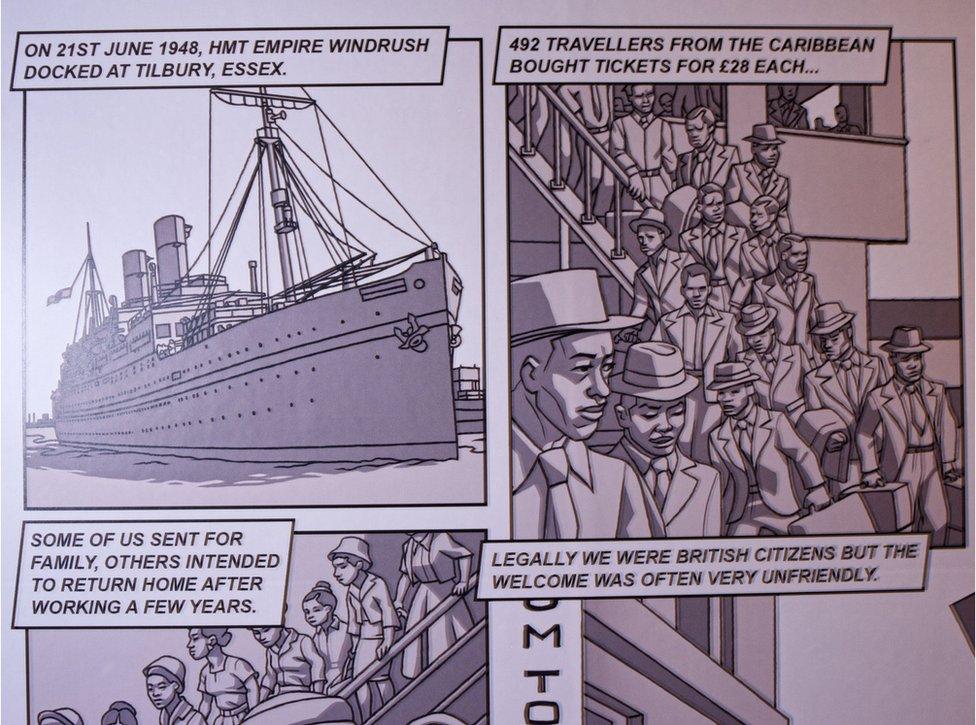
It includes stories of the Windrush generation
"For the black and diverse community, it is important that we've been heard," says fellow community curator Imani Sorhaindo.
"We usually feel there's not enough, or not accurate enough, conveyance of our story in Suffolk. The whole Black Panther exhibition is really affirming in building positive self-identities and black pride.
"It will put Ipswich on the map."
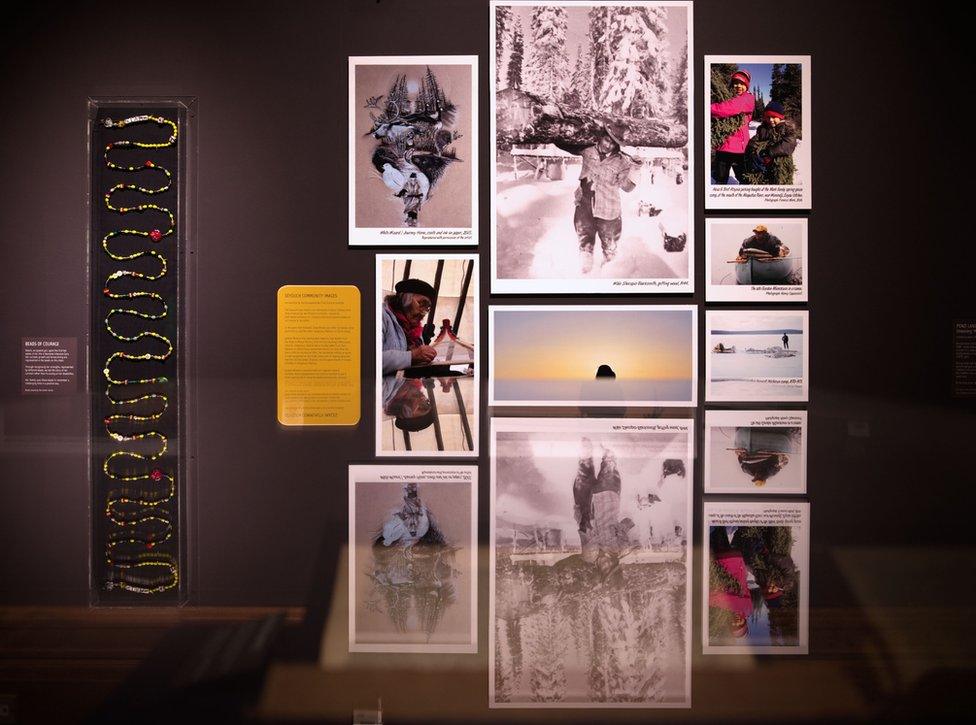
The idea behind the Power of Stories exhibition is to look at different forms of storytelling, past and present
The Power of Stories exhibition looks at how stories "keep memories of people and historical events alive".
It includes the history of the British Black Panthers, Ipswich's own struggle for equal rights, the arrival and contributions of the Windrush generation.
The emergence of the Ipswich and Suffolk Council for Racial Equality (ISCRE) is told in comic art form.
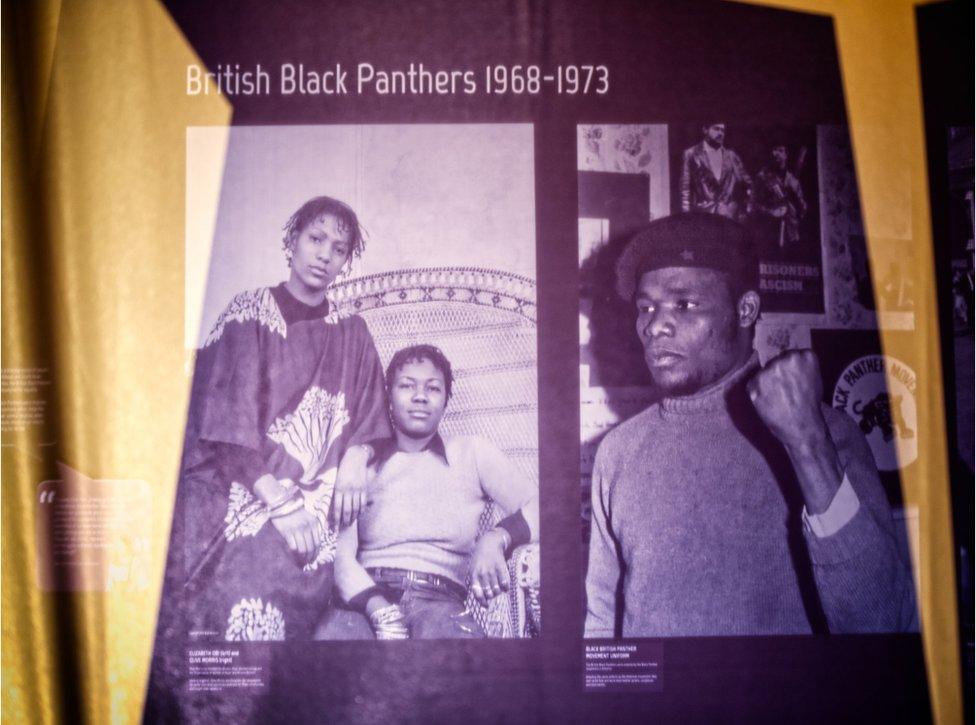
The exhibition includes the history of the British Black Panthers
"We commissioned Ipswich artist Dan Malone to create a unique and specially made piece of comic art to tell the story of ISCRE and its 40-year history," says Ms Hollis.
The group, she says, "was born out of a need to support people when they arrived in the UK" and "all those sorts of things which weren't necessarily there to support them when they arrived".
The exhibition also includes objects from the museum's African collections, with carved poles, puppets and sculptures dating back to the 1800s.
A Zulu shield held by the museum, similar to one used in the movie's fight scene at Warrior Falls, can also be seen.
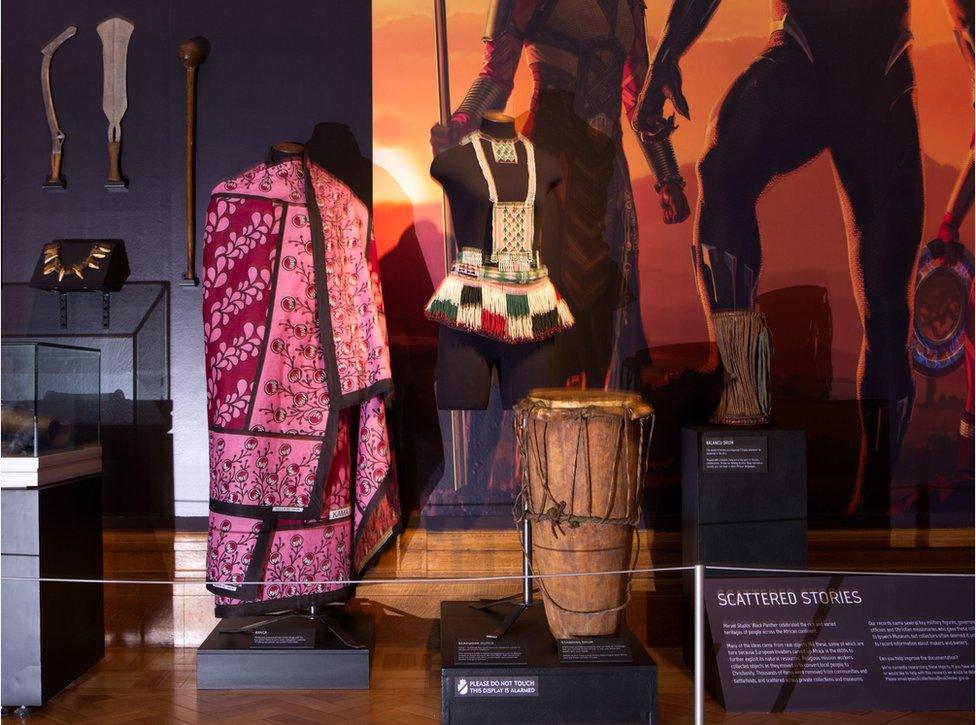
The exhibition also features objects from the museum's African collections dating back to the 1800s
"We have some Marvel exclusives," says Ms Hollis. "As well as four key comics that link to the Black Panther character and his journey through the Marvel universe, we have an exclusive storyboard that's never been released."
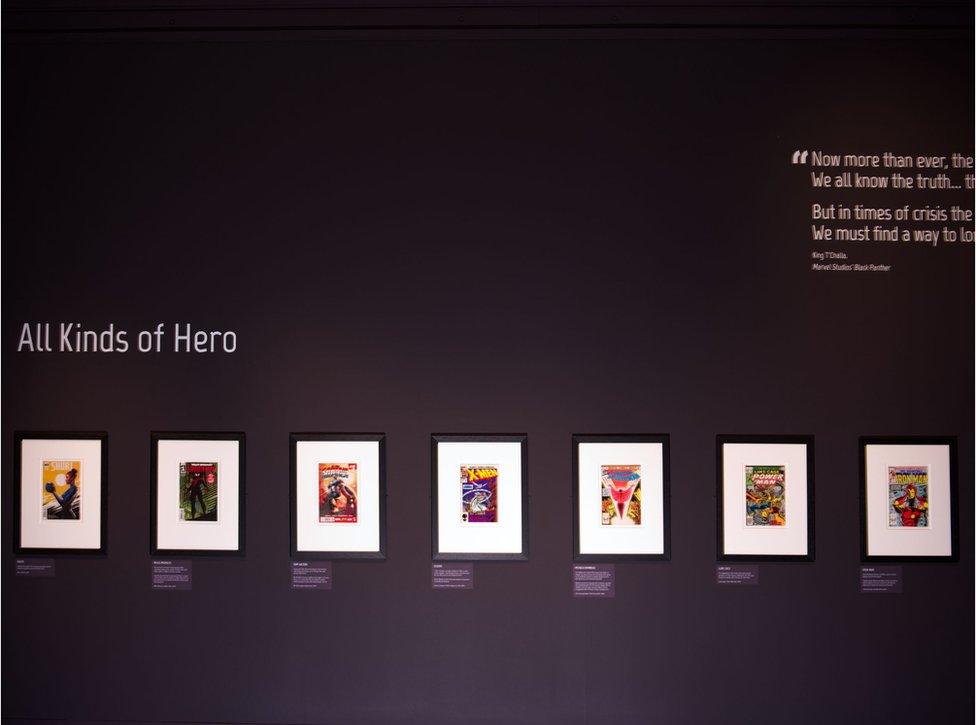
A number of comics across the Marvel range are included in the exhibition
The exhibition also ties in with a new community-led programme called Aspire Black Suffolk, which is hosting events from June to October celebrating black culture such as African storytelling, Yorba language lessons, performances and talks.
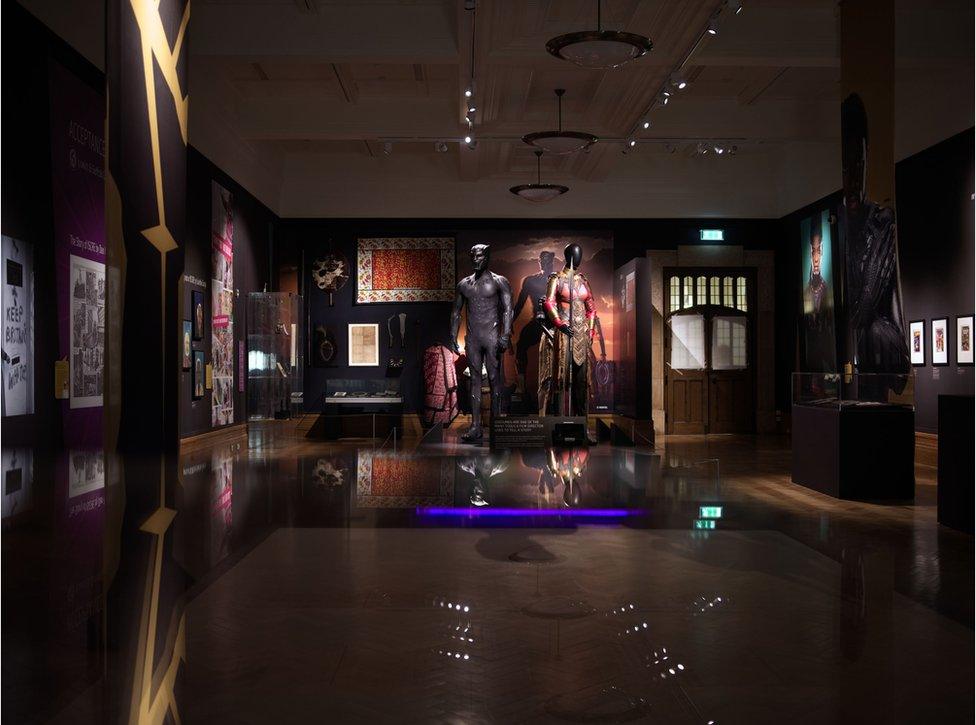
"I really hope they [young people] start to think 'maybe museums could be somewhere that they could use and enjoy'," says Ms Hollis
"This exhibition for us is a sign of our commitment to making room for more stories and to reflecting Ipswich's local history in a more rounded way," Ms Hollis says.
"I really hope that the Power of Stories gets people talking about the stories they hear and share, and about what culture is and how everybody's culture is important and relevant."
Marvel Studios would not comment on the loan.
Photography: Laurence Cawley

Find BBC News: East of England on Facebook, external, Instagram, external and Twitter, external. If you have a story suggestion email eastofenglandnews@bbc.co.uk, external
Related topics
- Published22 June 2021
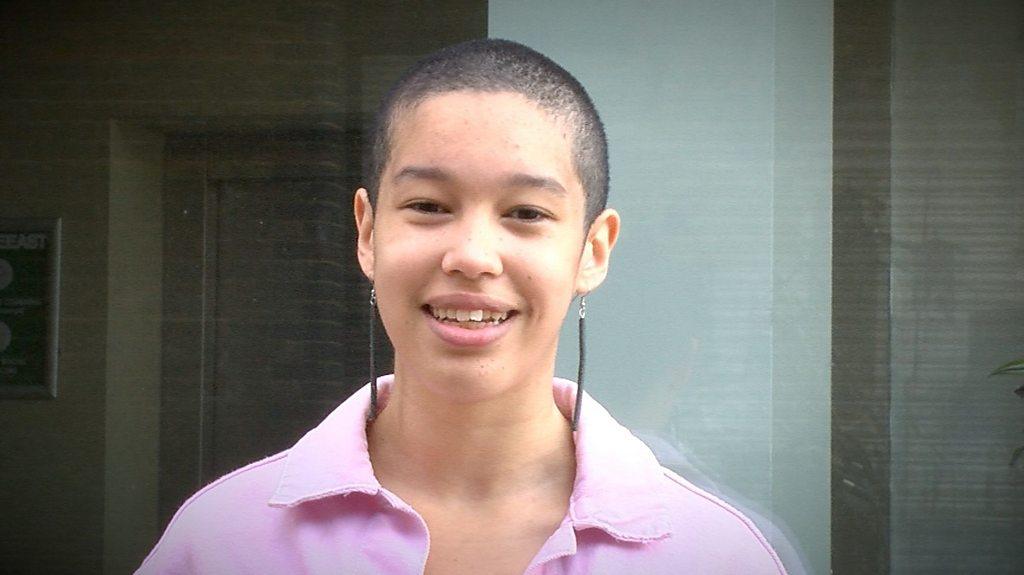
- Published22 June 2020
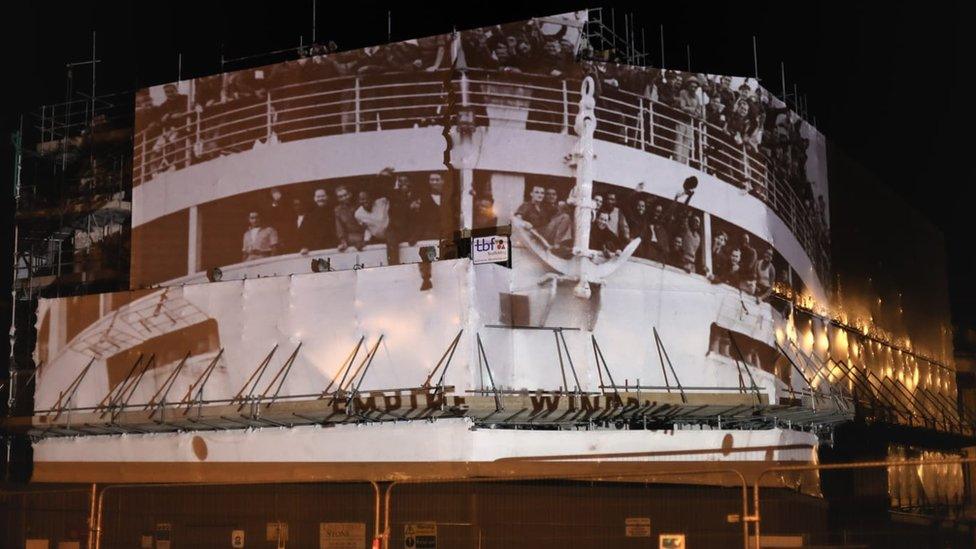
- Published9 February 2018
